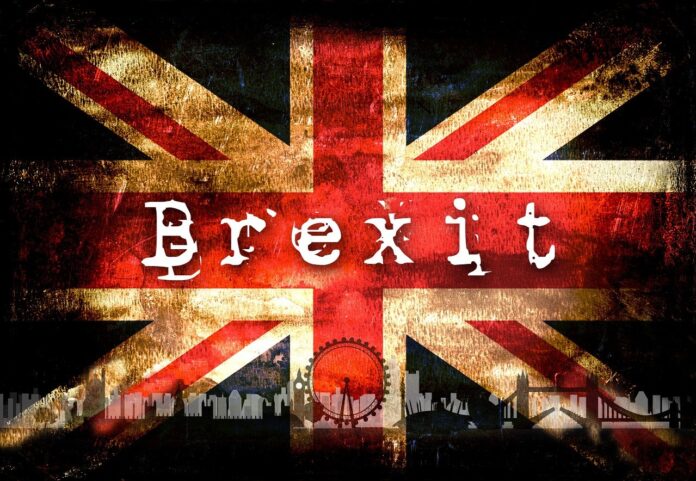The prospect of the United Kingdom rejoining the European Union is a subject of ongoing debate, both in Britain and across the continent. The argument that “if the British are let back into the EU they will only try to disrupt it again” draws on a long and complex history of UK-EU relations, marked by skepticism, opt-outs, and internal political divisions. This essay explores the historical context of Britain’s membership, the legacy of Brexit, the challenges of potential re-accession, and the likelihood-if any-of renewed disruption should the UK ever return to the EU.
Historical Context: An Awkward Partner
From its accession to the European Communities in 1973, the UK’s relationship with Europe was fraught with tension and ambivalence. The British approach was characterized by a persistent wariness of deeper integration and a preference for economic cooperation over political union. This attitude was evident in the UK’s repeated efforts to renegotiate membership terms, secure budget rebates, and opt out of key EU policies, such as the single currency and the Schengen Area410.
Margaret Thatcher’s government famously clashed with Brussels over the Common Agricultural Policy and budget contributions, reinforcing Britain’s reputation as an “awkward partner.” The Maastricht Treaty negotiations of the early 1990s further exposed deep divisions within British politics, as successive governments sought opt-outs and special arrangements to appease eurosceptic factions at home10. This pattern of exceptionalism and reluctance to embrace the European project set the tone for decades of British membership.
The Road to Brexit: Disruption from Within
The 2016 referendum on EU membership was the culmination of years of political and public unease about Britain’s place in Europe. The campaign was dominated by issues of sovereignty, immigration, and economic control-echoes of long-standing British concerns about ceding authority to Brussels69. The narrow victory for Leave (52% to 48%) exposed deep societal divisions and set the stage for a protracted and contentious withdrawal process5.
During the Brexit negotiations, the UK government’s shifting positions, internal party conflicts, and repeated attempts to renegotiate agreed terms tested the patience of EU partners. The drawn-out process, marked by parliamentary deadlock and repeated deadline extensions, reinforced perceptions of Britain as a disruptive force, unwilling to accept the rules and spirit of European cooperation510.
The Legacy of Brexit: Distrust and Division
Brexit has left a legacy of mistrust on both sides of the Channel. Within the UK, the issue remains deeply divisive, with public opinion still split over the merits of EU membership367. Among EU member states, there is lingering resentment over the years of British exceptionalism, the chaos of the withdrawal process, and the subsequent attempts by some political factions to undermine the terms of the Northern Ireland Protocol and other agreements45.
The EU, for its part, has made clear that any future British application to rejoin would be subject to the standard accession process, with no special treatment or “revolving door” for former members2. The UK would have to demonstrate a genuine commitment to EU values, accept the full acquis communautaire, and convince all member states of its reliability as a partner2.
The Challenges of Re-accession
Rejoining the EU would be a complex and politically fraught undertaking for the UK. The longer the country remains outside the bloc, the more the EU will have evolved, potentially making re-accession even harder2. The UK would likely be required to accept conditions it previously resisted, such as adopting the euro or joining the Schengen Area, and would have little leverage to negotiate opt-outs or special arrangements23.
Domestically, rejoining would reignite the fierce debates over sovereignty, immigration, and budget contributions that fueled Brexit in the first place39. The risk of renewed political instability and public backlash would be significant, especially among those who see EU membership as incompatible with British independence39.
Would Britain Disrupt the EU Again?
The central claim-that Britain would inevitably disrupt the EU if readmitted-rests on both historical precedent and current political realities.
Historical Precedent:
Britain’s record as an EU member was marked by skepticism, demands for special treatment, and frequent obstruction of deeper integration410. From budget rebates to opt-outs on major policies, the UK often acted as a brake on federalist ambitions and a champion of intergovernmentalism. This approach, while sometimes constructive in preventing overreach, also created friction and hampered the EU’s ability to move forward on key initiatives10.
Political Realities:
Even after Brexit, British politics remains deeply divided over Europe. While recent governments have ruled out rejoining the EU, a significant portion of the public-and some political factions-would resist any move toward renewed membership79. If the UK were to rejoin, these divisions would not disappear; instead, they could manifest as renewed efforts to secure exceptions, block integration, or challenge EU policies from within39.
EU Skepticism:
EU leaders and member states are acutely aware of Britain’s history as a difficult partner. Any move to readmit the UK would be met with caution, and there would likely be little appetite for accommodating the kinds of opt-outs and exceptions that characterized Britain’s previous membership212. The EU is now more unified in its approach to integration and less willing to tolerate internal dissent that undermines the project as a whole12.
Counterarguments: The Case for Change
It is important to acknowledge that the UK and the EU have also demonstrated an ability to cooperate on shared challenges, particularly in the areas of security, defense, and economic regulation489. Recent efforts to “reset” the relationship under new political leadership suggest a willingness to move beyond past grievances and build a more constructive partnership812. Some argue that, having experienced the costs of Brexit, a future British government might approach EU membership with greater humility and a stronger commitment to collective goals8.
Moreover, the EU itself has changed since Brexit, with a renewed focus on unity and resilience in the face of external threats. If the UK were to rejoin, it would do so under very different circumstances, with less leverage and fewer opportunities to disrupt from within212.
Conclusion
The argument that “if the British are let back into the EU they will only try to disrupt it again” is rooted in a long history of British ambivalence toward European integration and a pattern of exceptionalism that often put the UK at odds with its partners. The legacy of Brexit has deepened mistrust and highlighted the risks of internal division and obstruction.
While it is possible that a future UK government could approach EU membership with a new sense of purpose and cooperation, the structural and political factors that drove past disruption remain potent. The EU is likely to demand clear and binding commitments from Britain before considering readmission, and any return would come with far fewer privileges and much greater scrutiny.
Ultimately, the question is not just whether Britain would disrupt the EU again, but whether the EU would be willing to take that risk. Given the experience of the past fifty years, caution and skepticism will almost certainly prevail. For now, both sides appear to prefer a pragmatic partnership over the uncertainties of renewed membership-and the potential for further disruption24712.
By George Prince
Citations:
- https://en.wikipedia.org/wiki/Potential_re-accession_of_the_United_Kingdom_to_the_European_Union
- https://www.algoodbody.com/files/uploads/media_transcripts/BRENTRY_-_Could_The_UK_Rejoin_The_EU.pdf
- https://uollb.com/blogs/uol/pros-and-cons-of-uk-rejoining-eu
- https://en.wikipedia.org/wiki/United_Kingdom%E2%80%93European_Union_relations
- https://en.wikipedia.org/wiki/Brexit
- https://apnews.com/article/brexit-five-year-anniversary-uk-eu-economy-8a8b87fb3ddd9e9ac278469c291f97c1
- https://www.europarl.europa.eu/RegData/etudes/BRIE/2024/767164/EPRS_BRI(2024)767164_EN.pdf
- https://carnegieendowment.org/research/2025/01/brexit-bridges-and-barriers-where-next-for-eu-uk-relations?lang=en¢er=europe
- https://hansard.parliament.uk/commons/2025-03-24/debates/843E0908-311C-4791-BB00-997E88C5665B/EuropeanUnionUKMembership
- https://www.bbc.co.uk/news/extra/D6MgynFwGo/12_big_moments_in_UK_EU_relationship
- https://www.youtube.com/watch?v=tWAW95YQv1s
- https://www.cer.eu/about/annual-report/2024
- https://proactpartnership.com/blog/will-the-uk-rejoin-the-eu-or-continue-with-a-hard-brexit-after-the-elections
- https://www.youtube.com/watch?v=1Qm4AVEQehU
- https://davidallengreen.com/2023/06/why-the-united-kingdom-should-not-re-join-the-european-union-the-united-kingdom-should-start-any-application-from-scratch/
- https://www.euronews.com/my-europe/2023/09/29/brits-regret-brexit-but-rejoining-the-eu-is-unlikely
- https://www.standupforeurope.org/_why_the_uk_should_not_rejoin_for_now
- https://www.cbi.org.uk/media/1504/arguments-for-and-against-the-uks-european-union-membership.pdf
- https://petition.parliament.uk/petitions/700005
- https://commonslibrary.parliament.uk/research-briefings/cdp-2025-0067/
- https://www.youtube.com/watch?v=eJt6KLdHyeo
- https://www.youtube.com/watch?v=kbHHoF22fyM
- https://irglobal.com/article/what-ifthe-uk-rejoined-the-eu-customs-union/
- https://www.open.ac.uk/blogs/EUatOU/index.php/2023/08/03/goodwins-10-reasons-why-britain-will-not-rejoin-the-eu-some-thoughts/
- https://ukandeu.ac.uk/five-reasons-why-rejoining-the-eu-is-a-difficult-path-to-follow/
- https://conflictoflaws.net/2024/there-and-back-again-the-unexpected-journey-of-eu-uk-judicial-cooperation-finally-leads-to-the-hague/
- https://www.bbc.com/news/articles/cdrynjz1glpo
- https://oxfordre.com/politics/display/10.1093/acrefore/9780190228637.001.0001/acrefore-9780190228637-e-157?d=%2F10.1093%2Facrefore%2F9780190228637.001.0001%2Facrefore-9780190228637-e-157&p=emailAKPmVdw5bUtqA
- https://theconversation.com/britain-and-europe-a-long-history-of-conflict-and-cooperation-61313
- https://en.wikipedia.org/wiki/Impact_of_Brexit_on_the_European_Union
- https://policy.trade.ec.europa.eu/eu-trade-relationships-country-and-region/countries-and-regions/united-kingdom_en
- http://eprints.lse.ac.uk/67625/1/Oliver_Britains_Europe.pdf
- https://www.investopedia.com/terms/b/brexit.asp
- https://ecipe.org/publications/negotiating-uncertainty-uk-eu-relations/
- https://www.cam.ac.uk/research/discussion/opinion-britain-and-europe-a-long-history-of-conflict-and-cooperation
- https://ukandeu.ac.uk/did-brexit-solve-the-problems-of-the-uks-relationship-with-the-eu/
- https://ukandeu.ac.uk/explainers/factsheet-on-timeline-2/
- https://assets.publishing.service.gov.uk/media/5a8055a4e5274a2e87db9392/why-the-government-believes-that-voting-to-remain-in-the-european-union-is-the-best-decision-for-the-uk.pdf
- https://www.cer.eu/about/annual-report/2024
- https://www.cer.eu/insights/gap-between-brexit-reset-rhetoric-and-reality
- https://www.piie.com/blogs/realtime-economics/2024/uk-rapprochement-eu-possible
- https://yougov.co.uk/politics/articles/51484-how-do-britons-feel-about-brexit-five-years-on
- https://therejoineuparty.com
- https://www.bbc.co.uk/news/articles/cdrynjz1glpo
- https://www.algoodbody.com/files/uploads/media_transcripts/BRENTRY_-_Could_The_UK_Rejoin_The_EU.pdf
- https://ukdefencejournal.org.uk/britain-to-temporarily-rejoin-eu-to-smooth-over-security-pact/
- https://www.europarl.europa.eu/RegData/etudes/BRIE/2024/767164/EPRS_BRI(2024)767164_EN.pdf
- https://lordslibrary.parliament.uk/uk-and-europe-cultural-diplomatic-and-security-relations/
- https://www.culturaldiplomacy.org/pdf/case-studies/cs-bojana-perisic.pdf
- https://aei.pitt.edu/102404/1/LEQSPaper137.pdf
- https://time.com/5563689/britain-europe-relationship-history/
- https://natcen.ac.uk/public-attitudes-new-eu-referendum
- https://www.reuters.com/breakingviews/now-is-time-bold-new-uk-eu-relationship-2025-04-07/












